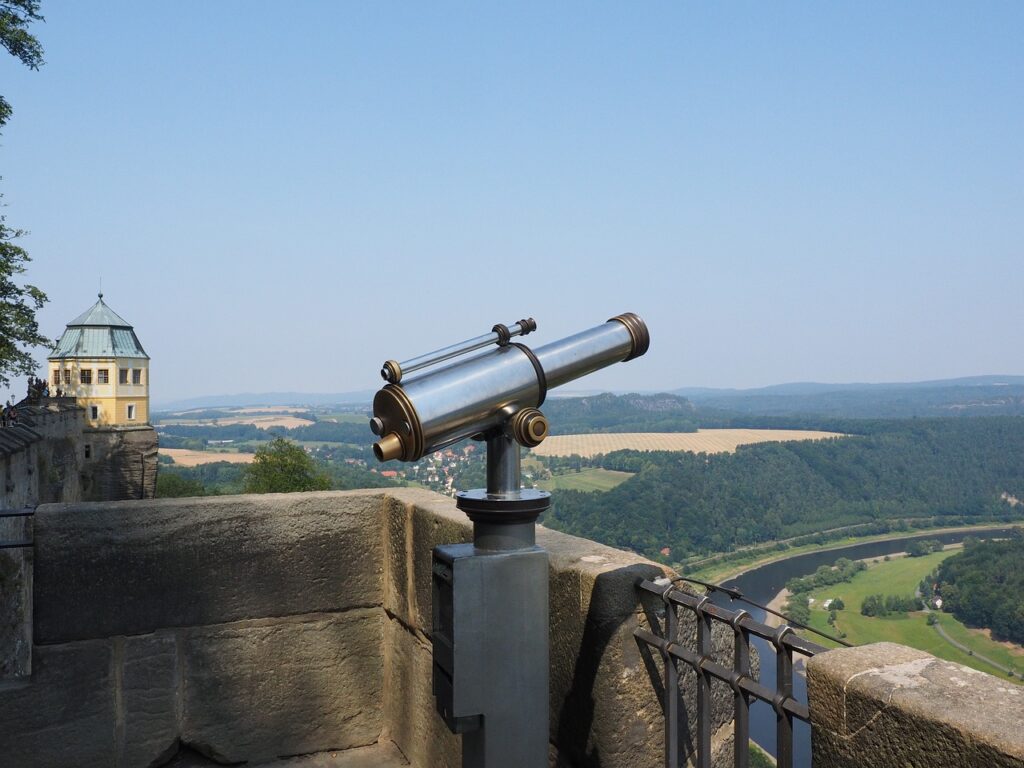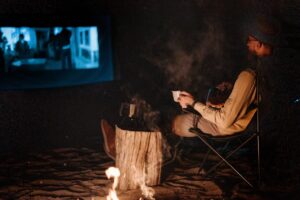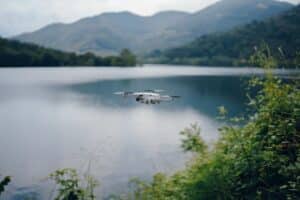Table of Contents
You may be wondering what is a monocular that has a 30mm lens. Well, you’ve come to the right place.
Without further ado, let’s get started.
What Is Monocular 30mm?
A monocular 30mm is one with an objective lens of 30mm.
People who want to take photos with their smartphones usually choose lenses with an objective focal length of at least 30mm. This is because the longer the focal length of the objective, the greater the amount (or quantity) of incoming natural lighting.
When you’re using a zoom lens with a larger diameter objective lens, it’s essential to keep in mind that the angle of field will be smaller than if you were using an ordinary 35mm (35 mm equivalentive) lens.
What is an Objective Lens?
The objective lens is located at the front of the binoculars, farthest away from your eye, and closest to whatever you’re looking at.
The size of the objective lenses largely determine how much light your monocle can collect. Larger objective lenses allow for greater amounts of light collection.
A larger aperture allows for greater depth of field, which makes objects appear sharper and closer together. However, the larger the aperture is, the slower the shutter speed must be to avoid blur.
Equinox Z2 3x 30 mm Night Vision Monocular by Bushnell®
With its Bushnell™ Equinix Z2 infrared (IR) illuminator, the Equinox Z2 allows you to see objects up to 500 feet away at any time of the year.
With its Bushnell Equinox Night Vison Monocular, you can spot objects up to 500 feet away at any time of day or night with an integrated infrared light source.
You can use your mobile phone to record videos, take pictures, adjust camera settings, and control IR brightness directly from your phone.
Specifications
- Magnification: 3x
- Objective Lens Diameter: 30 mm
- Distance: 500 feet / 152 meters
- Built-in Illuminator: Yes
- 1080P HD: Yes
- Wifi – Enabled: Yes
- App enabled: yes
- Audio/Video: Yes
- Batteries: Not Included
- Color: Black
- Length: 6.45 inches (164 millimeters)
- Width: 3.228″ / 82 mm
- Height: 2.087″ / 53 mm
- Weight: 15 oz. / 425 g
- Product Type: Digital Night Vision
- Configuration: Monocular
- Collection: Equinox Z2
- Battery Type: 4 AA
How to Choose a Monocular?
Monoculars are great options for anyone looking for something smaller than binoculars but not wanting the magnification power of binocular. They’re significantly lighter and easier to handle than binoculars.
Monoculars are easier to use than binoculars because they have focus adjustment and zoom lenses. They require batteries, however, which makes them less portable.
The following guide discusses how to select the best monocular for you and your needs.
What is a Good Monocular Power?
When buying a monocular, the first thing to consider is its power or magnification. Monoculars with a magnification of 6x to 10× will normally be better quality than those with lower magnifications. Monoculars with magnifications of 9× or 10× will usually cost a little more than those with magnification of 6× or 7×.
A monocular has the same magnification power as a pair of binocular lenses but they’re smaller than a pair of binocular glasses.
What is the Right Lens Size?
When looking at a monocular’s specifications, you will always see 2 numbers. The first one indicates the magnification factor (8x), and the second one the focal length (25mm).
Monocles come in different sizes. Lenses larger than 42mm will give you a wider field of vision. Bigger lenses will also produce sharper images when using your monocle.
The downside is that if you use a large lens, then your monoculars will become heavy and bulky.

What Is Monocular 30mm?
Monocular Size and Weight
Compact/portable monoculars usually come with a small carry case. They’re easy to take anywhere.
It’s a fun gadget to use because it’s small enough to fit into your pocket and keeps you from having to carry around a big camera. They’re also less expensive than most cameras.
Don’t expect too much from these tiny monoculars. They’re powerful enough for some light viewing, but they don’t offer a wide field of vision. You’ll need to first identify your subjects and then take pictures using them in a “snapshot” mode.
Monoculars come in different sizes, so if you want to enjoy a wide, sharp, and bright view, then you should always choose one between 30mm and 42mm.
Monocular vs. Spotting Scope
Monoculars are designed to be very compact, portable, and lightweight. They come in different sizes and shapes, but they’re usually smaller than binoculars.
Monoculars are usually smaller and lighter than binoculars. They’re typically used for observing wildlife from a moving vehicle or hiking.
If you want better performance but don’t care about the size or weight, you should get spotting scopes.
Monoculars vs Binoculars
Monocular scopes provide a 2D image, but binoculars allow for a 3-D experience because they give you the ability to see through them using both eyes simultaneously.
Why Should You Choose Monoculars Over Binoculars?
Monoculars are a good choice if you want to enjoy your bird-watching experiences to the fullest. They provide many benefits over monoculars, which include:
Wider fields of vision – Monoculars have a wider field of vision than binoculars.
Better image quality – Monoculars have better optics than binoculars. They don’t suffer from glare because they use one lens instead of two.
Easier to use – Monoculars are simpler to use than binoculars. You don’t need to adjust lenses or move them into position before using them.
They’re smaller and weigh less than typical binoculars, which makes them ideal for covering more ground in front and back.
Conclusion
We hope this article was helpful to you and you are now more aware of what 30mm monocular is and if it’s the best choice for you.
If you have any questions, feel free to reach out.
Author
-

John is the Editor in Chief here at The Outdoor Stores. His area of expertise ensures that there is no one better to suggest which rifles are most suitable for your hunting experience. He is also available for you to contact him personally to discuss the types of animals you want to hunt and the terrain you will be hunting on.
Feel free to read his posts for expert opinion on Rifles, Scopes, Rangefinders, Bonoculars and Monoculars.
View all posts






